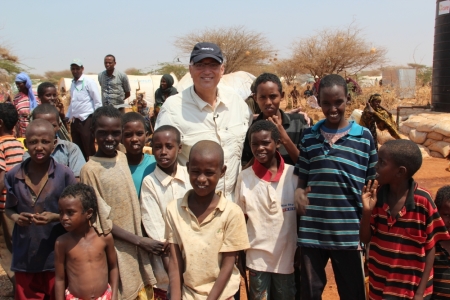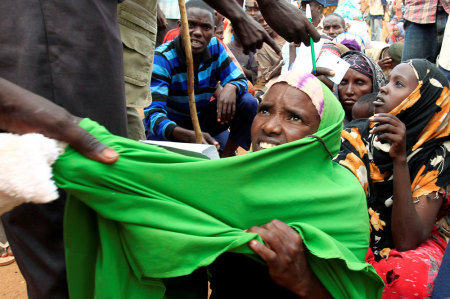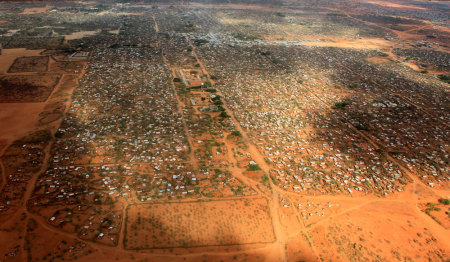600,000 Refugees Will Go Where? Kenya Plans to Shut Down Camps, Including World's Largest

The Kenyan government has announced its plan to close its refugee camps, which are home to 600,000 refugees, mostly from conflict-torn Somalia. A U.S.-based Christian group working in Kenya warns that the decision could lead to thousands of deaths "if the world doesn't respond immediately."
"It was with great surprise and concern that we learned of Kenya's decision to close its refugee camps, and in turn, to provide an unsure future to over 600,000 refugees, many of which are from war torn countries, like Somalia," said Vernon Brewer, founding president of the Virginia-based World Help group, said in a statement.
Kenya's Interior Ministry has said the refugees living in camps in Dadaab in the east of the country and Kakuma in the northwest will be repatriated to their countries of origin or to third-party countries for resettlement between November and next May.
"People who already live on the edge of death will most certainly die if the world doesn't respond immediately to this pending crisis," said Brewer, whose humanitarian organization serves the physical and spiritual needs of people in impoverished communities around the world.
"I know first hand the suffering of these desperate people," he added. "I have sat with them in their tents, I have wept with widows and children whose husbands and fathers have died in conflicts they didn't choose, and I've looked in the weary eyes of future generations whose opportunity and whose hope have been confined hopelessly to a tent in the middle of the desert."

Kenya has threatened to close down refugee camps also in the past and used the issue for political advantage during elections, but this time authorities have gone ahead and dissolved the Department of Refugee Affairs and formed a task force to manage the closure of the camp in Dadaab, which is the largest in the world housing around 350,000 people.
"We commend Kenya for all it has done till now with what has – at times – been dismal support from the international community," Brewer said. "Perhaps Kenyan officials would not feel compelled to take such drastic action if the international community were to provide more support to humanitarian and security services?"
Kenya's Interior Ministry claims that the Somalia-based terror group al Shabaab is using the refugee camps for terror attacks, including the one at Westgate Mall in September 2013.
"I will tell you for a fact, the people who carried out the terror attacks at Westgate, several of them were traced either through phone calls or through various contacts — intelligence — to refugee camps in Dadaab," spokesman Mwenda Njoka said, according to Voice of America.
Human Rights Watch senior refugee researcher Gerry Simpson disagrees.
"There's not a single shred of evidence that any registered Somali refugees in Kenya have been behind any attacks in Kenya," he was quoted as saying. "So far, not a single Somalia refugee has been charged with or convicted of any such offense. In the case of the attack on the Westgate Mall in Nairobi, and the Garissa attack in northeast Kenya last year, Somali nationals have been charged with those offenses, but they are known to have come in directly from Somalia, and were not registered refugees."
Whatever the reason behind Kenya's decision, Brewer says "the world has to awaken to the fact that we now have more refugees than any time in history, and that these vulnerable people, especially women and children, are the responsibility of us all."






















